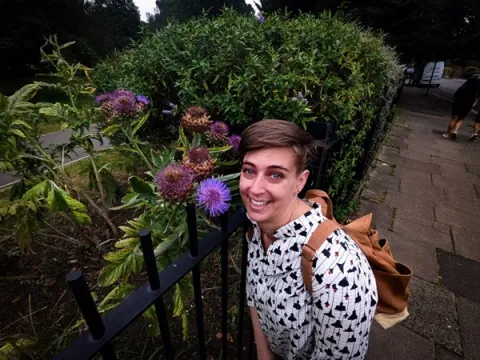About the project
Crisis narratives about privacy, creativity and automation have come to dominate techno-centric discourses about data. These crisis narratives, however, often overlook the very human vulnerabilities (re)produced by cis-hetero-patriarchal socio-technical infrastructures. This research will explore how queer data offer unique forms of resilience through attentiveness to plurality, mutability and intersectionality.
This research responds to polycrisis at the conjuncture of technological development and socio-political regress. We are experiencing a rapid proliferation of accessible technologies that have spurred crisis discourses surrounding data and datafication, whilst simultaneously seeing a surge in regressive anti-gender and paternalistic politicking that essentializes identity in the form of cis-hetero-patriarchal supremacy. In today’s largely inescapable mediascape, these two crises are most often articulated in the same time and place. Indeed, crisis narratives about privacy, creativity and automation have come to dominate techno-centric discourses about data.
These crisis narratives, however, overlook the very human vulnerabilities (re)produced by the cis-hetero-normativity underpinning socio-technical infrastructures. This research will explore how queer data offer unique forms of resilience at the confluence of these mutually reinforcing crises. Drawing on intersectional feminist approaches to critique, this research will develop a robust framework for attending to the material, embodied, and affective qualities of data, thereby prioritizing plurality, mutability, and intersectionality in understanding data, infrastructures, and (their) resilience.
Ultimately, this research engages with both data science and the humanities. The successful applicant need not have specific technical expertise in data science or computational methods but should have a solid grounding in critical humanities and/or social sciences thinking. This research is intended to engage in a nuanced deconstruction of dominant techno-solutionist thinking that equates technical proficiency with critical understanding. You will be encouraged to and fully supported by Southampton Digital Humanities and other relevant research groups in developing skills working with both computational methods and digital tools.

